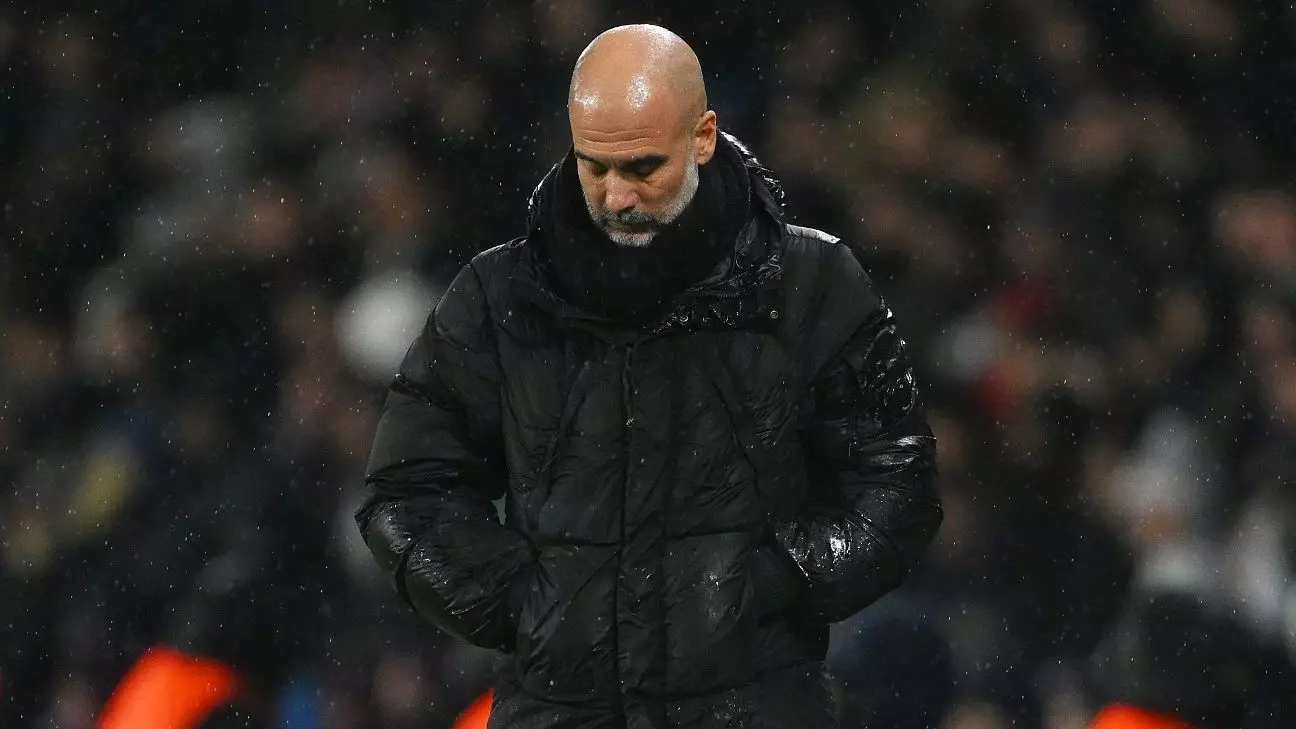Manchester City, under the management of Pep Guardiola, now finds themselves in a precarious position in the UEFA Champions League following a disappointing 4-2 defeat at the hands of Paris Saint-Germain (PSG). Despite establishing a promising 2-0 lead early in the second half with goals from Jack Grealish and Erling Haaland, City succumbed to a significant collapse that has thrust their chances of progression into serious jeopardy. This defeat not only puts immense pressure on the team but also raises questions about the club’s broader approach to European competition.
The Crucial Moments of the Match
At the Parc des Princes, the early momentum seemed firmly in City’s favor. However, after being unable to convert their lead into a commanding performance, the team’s defense faltered, allowing PSG to capitalize and score four unanswered goals. Guardiola’s dissection of the match revealed critical insights into City’s shortcomings. He cited a lack of intensity and aggression, particularly in key midfield battles, as a significant factor that led to their downfall. It is clear that the match serves as a microcosm of their current struggles in Europe.
The mounting pressure on City is palpable, with the team now faced with an imperative victory against Club Brugge at their home ground, the Etihad Stadium. Anything less than a win will result in an early exit from the European tournament, something that would mark a significant disappointment for a club aiming for glory in this prestigious event.
In his post-match comments, Guardiola expressed acceptance of the loss, acknowledging PSG’s superiority on the night by congratulating them for their performance. The manager highlighted a painful reality: City was outplayed not just tactically but also emotionally. There were discussions about the energy levels and the aggression with which PSG approached vital moments in the match. Guardiola’s admission that his team struggled in maintaining control of the midfield against PSG’s impressive setup points to deeper structural issues within the team during high-stakes games.
Guardiola also noted the difficulty City has faced in the Champions League this season, illustrating that this was not merely a fleeting glitch but rather a wider concern reflected in their performance history. Having surrendered winning positions multiple times throughout the season, there’s an impending need for City to reassess their defensive strategies and midfield dynamics if they wish to progress further in the tournament.
One of the most telling aspects of the match was City’s struggle to cope with PSG in transitional phases. Guardiola’s acknowledgment that his team “could not cope” during transitions underscores the importance of adaptability and sharp execution in crucial situations. City’s inability to maintain composure and link play effectively, particularly between players such as Bernardo Silva and Mateo Kovacic, left them exposed and vulnerable.
As Guardiola himself pointed out, effective football involves dominating possession, but in many facets of the game, City failed to defend with the ball, exacerbating their vulnerabilities against a clinical PSG squad. Such insights call for urgent tactical adjustments during their next match to ensure a coherent game plan that will allow them to execute efficiently both in attack and defense.
With the immediate focus shifting to their crucial match against Club Brugge, Manchester City stands at a crossroads. Guardiola’s insistence on their need to recover and refocus highlights the importance he places on mental resilience moving forward. The necessity to rebuild confidence and prepare adequately against Chelsea, who await them in their next domestic clash, is essential for stabilizing their season.
While Guardiola may have highlighted a singular chance to salvage their Champions League campaign, the outcome of the match against Brugge could define not only City’s European aspirations but also their overall momentum for the rest of the season. Continuous lapses and inability to adapt could lead the club to reassess strategies and player roles, ensuring that they emerge not just as a domestic powerhouse, but as a consistent contender on the European stage.
